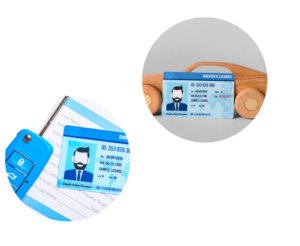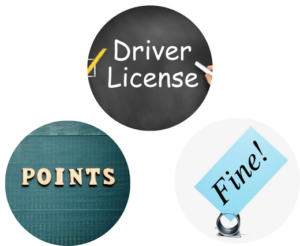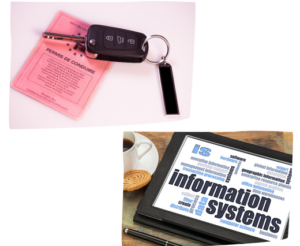Phase 2
The government should impose stricter regulations on driving. Drivers should be required to have a valid driver’s license, proof of insurance, and a valid vehicle registration. Drivers should also be required to drive within the speed limit, follow all traffic signs and signals, and observe basic safety rules such as not drinking and driving.
- Raising the minimum driving age:
Senegal should consider raising the minimum driving age. Senegal has age-restrictive laws in place, but they often don’t do enough to deter young drivers from taking risks. By raising the minimum age, the government will ensure that young drivers have a better grasp of the rules of the road before being granted a license.

- Graduated licensing” system for drivers:
Senegal should consider instituting a “graduated licensing” system for drivers. This system is designed to gradually introduce drivers to the rules of the road and teach them the importance of following the law. Under this system, drivers must pass a series of tests and prove that they are competent behind the wheel before being granted full driving privileges.
The system works by gradually introducing drivers to more complex situations and responsibilities by providing a series of safeguards, such as restrictions on certain types of driving and a minimum number of hours of supervised driving experience.
The graduated licensing system generally consists of three phases or steps.
The first phase is the instructional permit phase, which is for new drivers who have never held a driver’s license before. During this phase, drivers must complete a specified number of supervised driving hours and attend a driver education course. After they have completed these requirements, they may be eligible to take a driving test and receive their provisional license.
In the second phase, the provisional license phase, drivers must follow certain restrictions. These restrictions usually include a night-time driving curfew, a limit on the number of passengers, and may not drive while intoxicated. After a period of time, usually one year, the driver may be eligible to take the driving test and receive their full driver’s license.
The final phase of the graduated licensing system is the full license phase. This phase requires the driver to be more responsible, as they will have fewer restrictions and greater privileges. However, drivers may still be subject to ongoing restrictions, such as limits on night-time driving and the amount of passengers that can be in the car.
The graduated licensing system is an important step in ensuring the safety of all drivers. Drivers can generally complete the steps of this system through taking approved driver’s education courses and by following the restrictions placed on them during each stage. This system can help improve road safety by gradually introducing drivers to their duties and responsibilities on the road and by providing them with the knowledge and skills required for safe driving.

- Fines and points on a driver’s license
Senegal should look into implementing more stringent penalties for those who violate traffic laws. By increasing the costs associated with violating traffic laws, such as fines and points on a driver’s license, Senegal can encourage drivers to pay better attention to their driving habits and encourage safe driving. Fines and points are a form of punishment that can help reward good driving and discourage reckless driving.
Fines are monetary penalties that drivers must pay for moving violations. These fines can range from small amounts for minor violations, such as a broken tail light, to large amounts for more serious violations, such as driving under the influence of drugs or alcohol. Fines are enforced by authorities as a way to help keep drivers safe and make them aware of their actions.
Points are also assigned to drivers’ licenses for moving violations. These points can range from one point for minor violations to more points for major violations. Points are added to a driver’s license for each violation and if the number of points accumulates to a certain amount within a certain period of time, drivers may face license suspension or revocation. Points also help reinforce good driving habits by providing drivers with an incentive to practice safe driving.
For any point system to be successful, the government must implement effective policies to ensure adherence. A driver’s license should be provided to every individual who passes their driver’s tests, and they should be given a certain number of points to start with. Any violation such as speeding, reckless driving or parking violations should result in the loss of points, while good behavior such as not breaking traffic laws or avoiding causing accidents should be awarded additional points. Drivers should have to attend a training and education course to improve their driving skills and restore any lost points.

- Digital monitoring systems
The government of Senegal should create a system to closely monitor and track drivers, such as cameras and digital monitoring systems. This would help to ensure that drivers are following the rules and to provide an additional deterrent to any wrongdoing. Drivers should be made aware of the consequences of breaking laws, such as license revocations and suspensions if a certain number of points are lost.
Senegal can use a digital monitoring systems such as the Driver License Information System (DLIS) to track driver point totals on drivers’ licenses
The DLIS is a centralized platform that allows government agencies to share information on all aspects of DLIS, from registering, issuing and renewing licenses, to vehicle registration and safety inspection requirements. It is a comprehensive and robust solution for managing driver license (DL) information.
Senegal can utilize this tool to efficiently manage the issuing of driver licenses, vehicle registration and safety inspection requirements.
Law enforcement officers can use the DLIS to track driver point totals on drivers’ license and report traffic violations, convictions, suspensions, and other relevant data.
The DLIS can also be used for data analysis related to collision analysis, crash predictors and safety initiatives. This type of data can be particularly useful for those countries with limited resources and relatively low levels of motor vehicle safety. In addition, the DLIS provides valuable feedback which can be utilized by Senegal when making decisions related to driver education, road safety campaigns and enforcement. This helps to ensure that policy initiatives are effective and that resources are used appropriately.

- Harsher punishments
In addition to fines and points, Senegal may also install harsher punishments for drivers who commit serious violations, such as reckless or impaired driving. These punishments include license suspension, license revocation, mandatory drug or alcohol programs and even jail time. The severity of the punishment depends on the seriousness of the violation and the number of points a driver has accumulated on their license.
These punishments can be used to teach drivers to be more aware of their actions and to follow the rules of the road. By enforcing these punishments, authorities are helping to create a safer driving environment and reduce the number of motor vehicle accidents.

Next: How can we prevent road traffic accidents in Senegal? Phase 3
